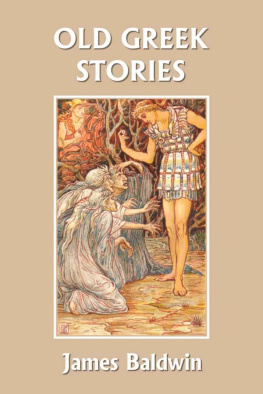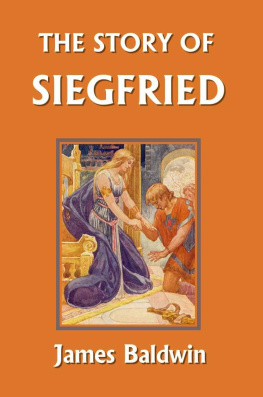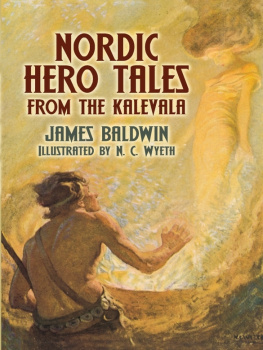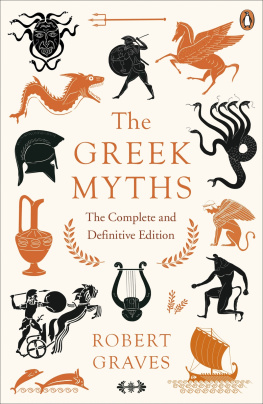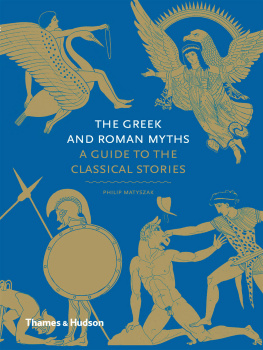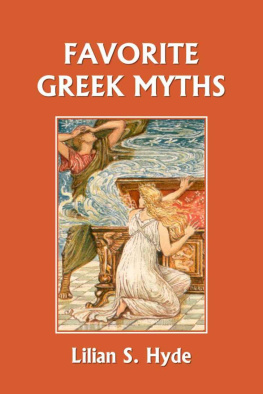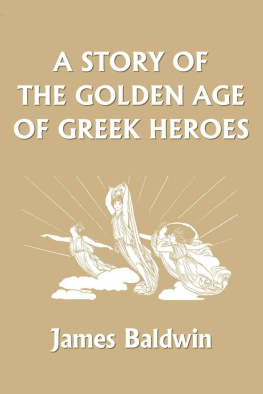Old Greek Stories
by
James Baldwin
Yesterday's Classics
Chapel Hill, North Carolina
Cover and Arrangement 2010 Yesterday's Classics, LLC
All rights reserved. No part of this book may be reproduced or retransmitted in any form or by any means without the written permission of the publisher.
This edition, first published in 2010 by Yesterday's Classics, an imprint of Yesterday's Classics, LLC, is an unabridged republication of the work originally published by American Book Company in 1895. This title is available in a print edition (ISBN 978-1-59915-296-7).
Yesterday's Classics, LLC
PO Box 3418
Chapel Hill, NC 27515
Yesterday's Classics
Yesterday's Classics republishes classic books for children from the golden age of children's literature, the era from 1880 to 1920. Many of our titles are offered in high-quality paperback editions, with text cast in modern easy-to-read type for today's readers. The illustrations from the original volumes are included except in those few cases where the quality of the original images is too low to make their reproduction feasible. Unless specified otherwise, color illustrations in the original volumes are rendered in black and white in our print editions.
Preface
Perhaps no other stories have ever been told so often or listened to with so much pleasure as the classic tales of ancient Greece. For many ages they have been a source of delight to young people and old, to the ignorant and the learned, to all who love to hear about and contemplate things mysterious, beautiful, and grand. They have become so incorporated into our language and thought, and so interwoven with our literature, that we could not do away with them now if we would. They are a portion of our heritage from the distant past, and they form perhaps as important a part of our intellectual life as they did of that of the people among whom they originated.
That many of these tales should be read by children at an early age no intelligent person will deny. Sufficient reason for this is to be found in the real pleasure that every child derives from their perusal: and in the preparation of this volume no other reason has been considered. I have here attempted to tell a few stories of Jupiter and his mighty company and of some of the old Greek heroes, simply as stories , nothing more. I have carefully avoided every suggestion of interpretation. Attempts at analysis and explanation will always prove fatal to a child's appreciation and enjoyment of such stories. To inculcate the idea that these tales are merely descriptions of certain natural phenomena expressed in narrative and poetic form, is to deprive them of their highest charm; it is like turning precious gold into utilitarian iron: it is changing a delightful romance into a dull scientific treatise. The wise teacher will take heed not to be guilty of such an error.
It will be observed that while each of the stories in this volume is wholly independent of the others and may be read without any knowledge of those which precede it, there is nevertheless a certain continuity from the first to the last, giving to the collection a completeness like that of a single narrative. In order that the children of our own country and time may be the better able to read these stories in the light in which they were narrated long ago, I have told them in simple language, keeping the supernatural element as far as possible in the background, and nowhere referring to Jupiter and his mighty company as gods. I have hoped thus to free the narrative still more from everything that might detract from its interest simply as a story.
J. B.
Contents
Jupiter and His Mighty Company
A LONG time ago, when the world was much younger than it is now, people told and believed a great many wonderful stories about wonderful things which neither you nor I have ever seen. They often talked about a certain Mighty Being called Jupiter, or Zeus, who was king of the sky and the earth; and they said that he sat most of the time amid the clouds on the top of a very high mountain where he could look down and see everything that was going on in the earth beneath. He liked to ride on the storm-clouds and hurl burning thunderbolts right and left among the trees and rocks; and he was so very, very mighty that when he nodded, the earth quaked, the mountains trembled and smoked, the sky grew black, and the sun hid his face.
Jupiter had two brothers, both of them terrible fellows, but not nearly so great as himself. The name of one of them was Neptune, or Poseidon, and he was the king of the sea. He had a glittering, golden palace far down in the deep sea-caves where the fishes live and the red coral grows; and whenever he was angry the waves would rise mountain high, and the storm-winds would howl fearfully, and the sea would try to break over the land; and men called him the Shaker of the Earth.
The other brother of Jupiter was a sad pale-faced being, whose kingdom was underneath the earth, where the sun never shone and where there was darkness and weeping and sorrow all the time. His name was Pluto, or Aidoneus, and his country was called the Lower World, or the Land of Shadows, or Hades. Men said that whenever any one died, Pluto would send his messenger, or Shadow Leader, to carry that one down into his cheerless kingdom; and for that reason they never spoke well of him, but thought of him only as the enemy of life.
A great number of other Mighty Beings lived with Jupiter amid the clouds on the mountain top,so many that I can name a very few only. There was Venus, the queen of love and beauty, who was fairer by far than any woman that you or I have ever seen. There was Athena, or Minerva, the queen of the air, who gave people wisdom and taught them how to do very many useful things. There was Juno, the queen of earth and sky, who sat at the right hand of Jupiter and gave him all kinds of advice. There was Mars, the great warrior, whose delight was in the din of battle. There was Mercury, the swift messenger, who had wings on his cap and shoes, and who flew from place to place like the summer clouds when they are driven before the wind. There was Vulcan, a skillful blacksmith, who had his forge in a burning mountain and wrought many wonderful things of iron and copper and gold. And besides these, there were many others about whom you will learn by and by, and about whom men told strange and beautiful stories.
They lived in glittering, golden mansions, high up among the cloudsso high indeed that the eyes of men could never see them. But they could look down and see what men were doing, and oftentimes they were said to leave their lofty homes and wander unknown across the land or over the sea.
And of all these Mighty Folk, Jupiter was by far the mightiest.
The Golden Age
J UPITER and his Mighty Folk had not always dwelt amid the clouds on the mountain top. In times long past, a wonderful family called Titans had lived there and had ruled over all the world. There were twelve of themsix brothers and six sistersand they said that their father was the Sky and their mother the Earth. They had the form and looks of men and women, but they were much larger and far more beautiful.
The name of the youngest of these Titans was Saturn; and yet he was so very old that men often called him Father Time. He was the king of the Titans, and so, of course, was the king of all the earth besides.

